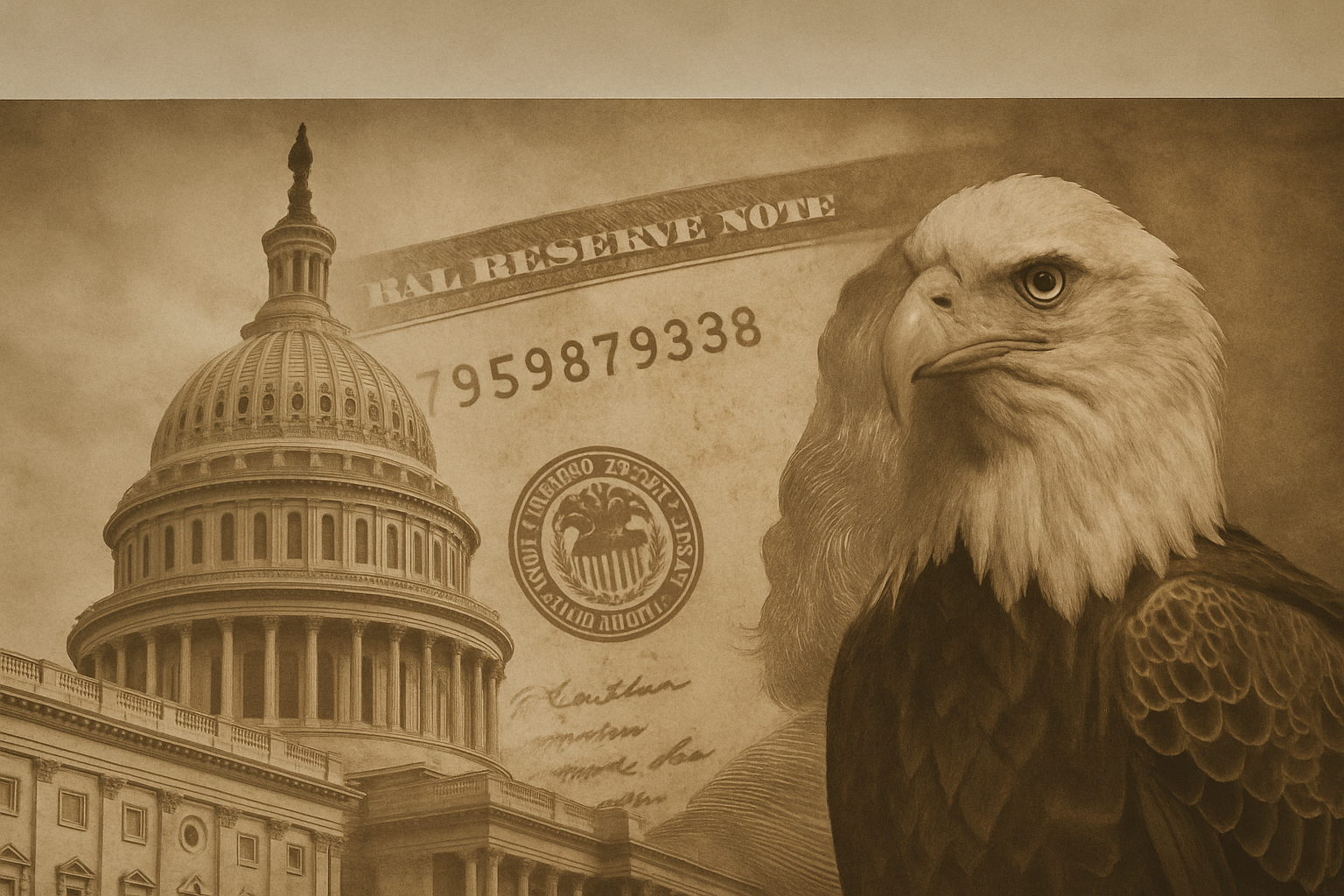
The 1913 Coup
The Beginning of the End of Our Freedoms and Our Constitutional Republic
In 1913, something happened that most Americans today neither remember nor fully understand—but its effects ripple through every dollar we earn, every tax we pay, and every crisis we endure. That year marked the passage of two historic changes: the creation of the Federal Reserve and the ratification of the 16th Amendment, which authorized the federal income tax. Many now argue that these two events were not simply policy shifts—they were a coup against the original architecture of our Constitutional Republic.
A Currency No Longer Anchored
Before 1913, America operated without a central bank in the modern sense. Currency was tied more directly to tangible value, especially gold and silver. The Founding Fathers were clear: centralized monetary power was to be feared. Thomas Jefferson warned that “the central bank is an institution of the most deadly hostility existing against the principles and form of our Constitution.” Yet we now live under exactly such an institution.
The Federal Reserve, a private banking cartel disguised as a government agency, took control of our money supply in 1913. Since then, the value of the U.S. dollar has eroded by more than 97%. Inflation is no longer an occasional crisis—it’s baked into the system. And with it comes the slow erosion of savings, purchasing power, and independence.
Taxation as a Means of Control
Also in 1913, the 16th Amendment gave Washington D.C. unprecedented power to tax income directly. Before that, federal revenues came mostly from tariffs and excise taxes—indirect methods that limited government size and scope. But now, your productivity is taxed at the source. The federal government has grown from a small, restrained servant of the people into a vast, centralized power with an ever-growing appetite.
The Shift from Liberty to Leverage
With both monetary and fiscal levers consolidated in Washington (and by extension, Wall Street), the shift was complete: America would no longer operate on principles of sound money and limited government. Instead, our nation entered the age of monetary manipulation, debt servitude, and perpetual inflation.
What we call “economic cycles” are now often the result of monetary policy errors—artificial booms followed by devastating busts. And the burden falls not on central bankers or politicians, but on everyday Americans trying to save, invest, retire, and live free.
Why It Matters Now
Today, with inflation still hot, the dollar weakened, and asset bubbles in nearly every corner of the market, it’s important to understand where this all began. 1913 wasn’t just a change in policy—it was a change in philosophy. And it’s been driving us ever further from the self-reliant, Constitutionally grounded model that once defined American prosperity.
The consequences are financial, yes—but they’re also cultural and generational. Freedom and financial independence are being sacrificed on the altar of centralized control.
What Can We Do?
This isn’t just a history lesson—it’s a call to rethink how we manage our assets, how we protect our wealth, and how we prepare for what’s next. At Bailey Financial Services, we help clients take steps to navigate this reality—diversifying into assets designed to take advantage of what is coming, reducing exposure to unsustainable bubbles, and preparing for the correction that many believe is long overdue.
It’s not too late to reclaim control—but it starts with understanding the game we’re in.
Reach out to us if you’re ready to have that conversation.